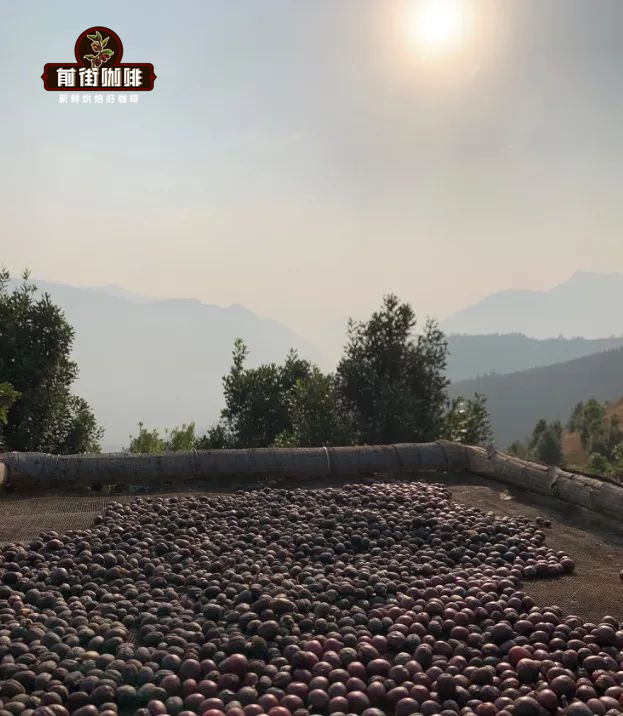What is organic coffee? organic coffee is environmentally friendly? the standard of organic coffee in different countries
Organic means growing without pesticides, which sounds simple, right? In fact, it is not as simple as it is literally understood. It also involves the question of where coffee is grown, where it is sold and how it is processed.
It is worth noting that organic food is less geographically diverse. About 75% of the world's organic coffee beans are grown in Latin America. The remaining 1/4 come from Asian and African countries.
Organic standards (not exactly the same)
There are different organic standards around the world, and things get complicated when you look at the rules for selling products with the "organic" label in any particular country. For example, in the United States, USDA organic certification applies only to crops that meet United States organic standards, regardless of where they come from around the world.
Not only meets the organic standards of your country, but also meets the organic standards of any other country you may want to sell.
Organic planting
Organic agriculture that most people are familiar with is agriculture that does not use chemical fertilizers or pesticides. There are some differences in how long land around the world must be chemical-free before it can be considered an organic crop.
Some countries have asked to wait three to five years for residues to be removed from the soil. For others, what matters is how to deal with specific crops.
It is a common misconception that organic crops are grown without any fertilizers or pesticides. To ensure the health of crops, both are needed. The difference is that plants will be nourished using natural fertilizers such as chicken manure, coffee pulp or compost.
When it comes to pest control, it is a bit difficult. Modern coffee production has shifted to growing in the open sun to maximize production. This makes plants and cherries vulnerable to pests.
Organic growers usually choose the "old method", growing plants at least in part in the shade. This encourages the life of natural insects and birds to thrive and makes crop-destroying pests a meal.

Organic processing
Whether coffee is washed or tanned, producers must be careful to ensure that coffee beans are not contaminated at any stage.
This includes things such as bags that pickers put in harvests and bags that ship processed beans around the world.
In terms of processing, the simplest organic processing method is to use dry processing.
Wet processing takes longer unless chemical additives are used to accelerate it. It also uses a lot of water that has an impact on the environment, as does the treatment of by-products.
Organic baking
No matter where it comes from, if coffee is to be sold as organic coffee, it must be in a roaster that does not roast anything but organic beans.
If it is used in non-organic coffee beans, chemical residues may be transferred to organic coffee beans in the process.
Organic bakers must not add any other chemicals or additives to the baking process. There are no roaster performance enhancers. Your beans should come out as pure and pollution-free as they come in.
Of course, if you live in an area where you can buy locally grown coffee beans, you can always try to buy some organic coffee beans outside the farm!
They're healthier.
One of the reasons why many people choose organic coffee over non-organic and instant coffee is that a diet without additives is considered healthier. Organically grown coffee contains vitamins, minerals and antioxidants, which can also help you get rid of chemicals you ingest elsewhere.
Drinking good coffee has many benefits to health, and organic coffee has no disadvantages.
More environmentally friendly
As I mentioned earlier, most organically grown coffee is grown in the shade. The forest was cut down in order to grow in the sun. Tall trees and other plants were destroyed and animals and insects lost their homes.
This does not happen when plants grow under the shelter of other plants and trees. Your coffee not only ripens longer on plants (stronger flavor! It also protects the homes of birds, insects and wild animals.
Important Notice :
前街咖啡 FrontStreet Coffee has moved to new addredd:
FrontStreet Coffee Address: 315,Donghua East Road,GuangZhou
Tel:020 38364473
- Prev

Is Middle East coffee Turkish coffee? can Turkish coffee be a fortune teller? Turkish coffee culture
Turkish coffee is one of the most popular international coffees. Why is it so popular? In the Middle East, coffee is not just a pick-me-up, it's a part of life. Coffee is a very social activity that brings people together. This is the time to get in touch with friends and family. Turkish coffee is a deep-rooted part of Turkish culture and its unique brewing method.
- Next

What's good coffee? How to choose Italian coffee for the first time
Whether you like it with milk and sugar, lots of foam, ice cubes or extra coffee, one thing is for sure: you like our coffee. Most people drink coffee in a very special way. From the simplest (straight and black) to the most complex (semi-lean, semi-1% extra hot Americano with extra shots and whipped cream), we order coffee in a similar way.
Related
- What brand of black coffee is the most authentic and delicious? what are the characteristics of the flavor of the authentic Rose Summer Black Coffee?
- Introduction to the principle and characteristics of the correct use of mocha pot A detailed course of mocha pot brewing coffee is described in five steps.
- Which is better, decaf or regular coffee? how is decaf made?
- How much is a bag of four cat coffee?
- How about four Cat Coffee or Nestle Coffee? why is it a cheap scam?
- Which is better, Yunnan four Cats Coffee or Nestle Coffee? How about cat coffee? is it a fake scam? why is it so cheap?
- How about Cat Coffee? what grade is a hoax? which instant coffee tastes better, four Cat Coffee, Nestle Coffee or G7 coffee?
- Process flow chart of coffee making-Starbucks coffee making process what coffee tastes good at Starbucks
- The top ten best coffee beans in the world Rose summer coffee or Tanzanian coffee tastes good
- Yunnan four cat coffee is good to drink?_four cat coffee is a big brand? four cat blue mountain coffee is fake?

